A marine park named Miami Seaquarium hit headlines earlier this month when a dolphin attacked a trainer during a live show. In a video captured by a spectator, the animal can be seen behaving aggressively towards the employee, before dragging her underwater in front of the audience.
The park later released a statement claiming the incident occurred because the trainer had accidentally scratched the animal. It has since, thankfully, been confirmed that both the dolphin and trainer are recovering well.
The attack was hard to watch, and no doubt horrifying for the trainer who fell victim. While we of course must have sympathy for the staff and audience – for whom it will likely have been a hugely upsetting experience – we must not forget that the incident occurred because of the park itself.
The dolphin should never have attacked the trainer because they should never have been in captivity in the first place. No animal should be forced to spend their life in an unnatural environment, made to perform tricks for a screaming audience. Just like all captive animals, the dolphin would have experienced years of physical and mental anguish before the incident occurred.
The problem with animal entertainment venues
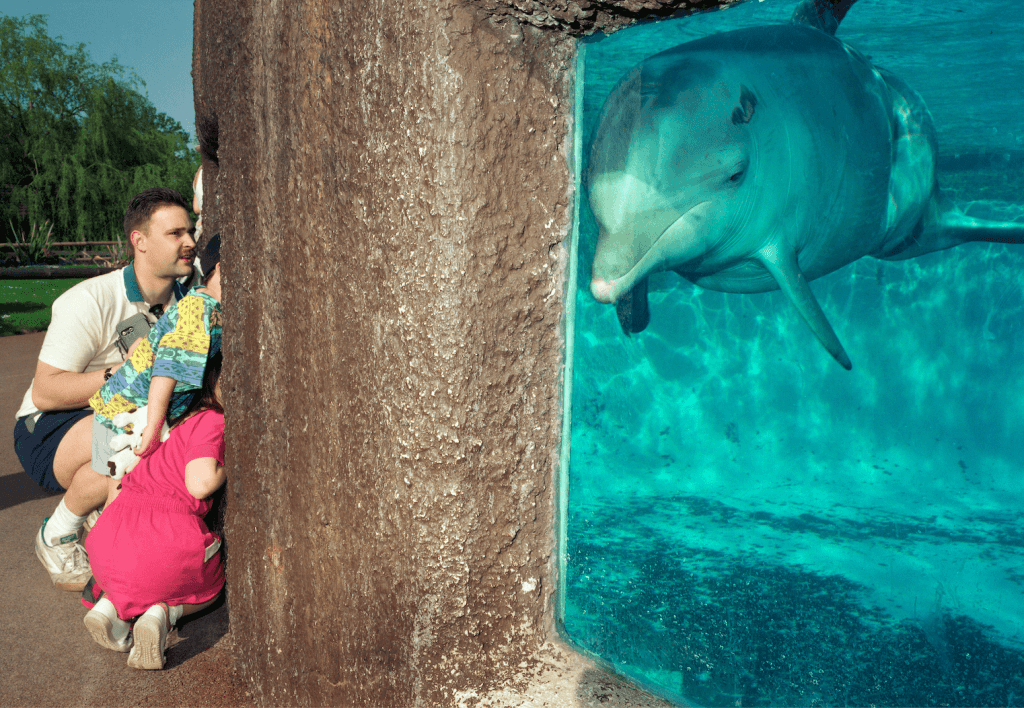
Marine parks and aquariums are part of a billion-dollar industry that exists to entertain the public by catching fish and sea mammals, including dolphins and killer whales, and using them as living exhibits. In the natural world, such animals would form close bonds with their pods and spend their days foraging and hunting for prey.
But those kept captive aren’t afforded such enrichments. The animals, many of whom have evolved to travel up to 100 miles a day at fast speeds in the wild, are instead forced to spend their lives swimming endlessly and aimlessly in tiny barren tanks, or being harassed by humans.
Due to the conditions in which they’re kept, a 2019 report by World Animal Protection found that captive animals exhibited abnormal levels of aggression. This indicates that the attack at Miami Seaquarium was likely a direct result of captivity.
While the park would have you believe this was an isolated incident, attacks on humans in similar attractions are not uncommon. This is just the latest in a long line of reminders that these sentient animals should be urgently removed from captivity.
Animal attacks
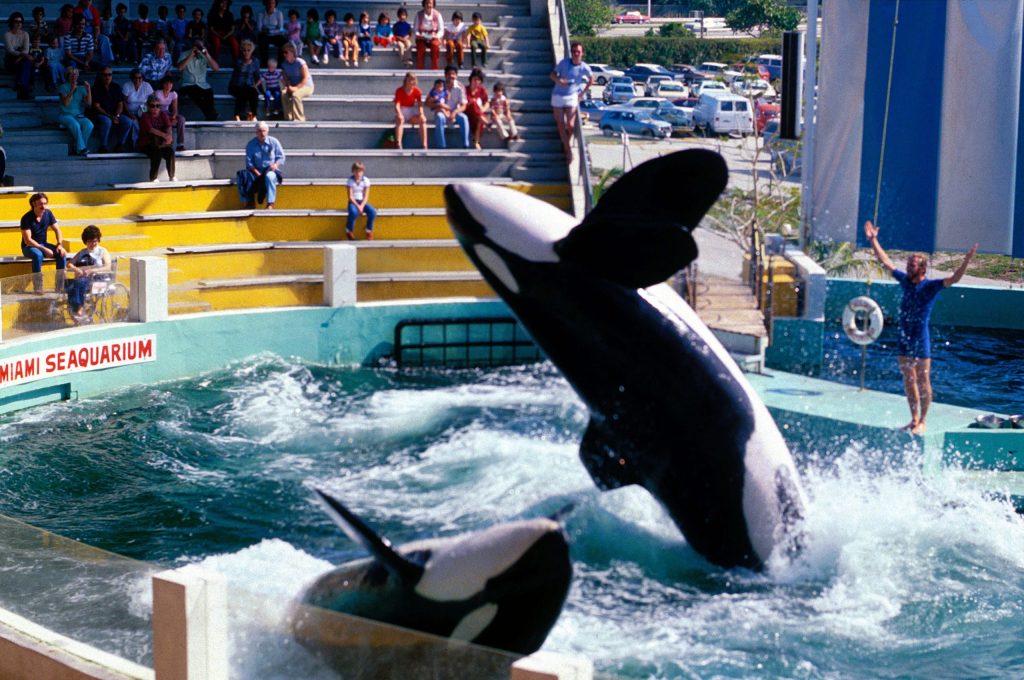
In 2019, a 10-year-old girl was attacked during a “swimming with dolphins” experience in Mexico. The dolphins – who were being held captive in a small closed off section of the sea – bit and dragged the girl underwater in front of trainers and her horrified mother.
Thankfully, the child survived, but was left with several cuts, bruises, and bite marks.
Injuries like broken arms, cracked sternums, and lacerations, as well as shock, have all been documented at similar attractions. For instance, in 2004, a man required surgery after being attacked by a dolphin, also at Miami Seaquarium.
Attacks from captive animals can also have far more tragic consequences. Writing in the CRC Handbook of Marine Mammal Medicine, Veterinarian Jay C. Sweeney describes aggression by killer whales toward their trainers as “a matter of grave concern.”
Sweeney added: “Aggressive manifestations toward trainers have included butting, biting, grabbing, dunking, and holding trainers on the bottom of pools and preventing their escape.”
In 2009, an orca named Keto, who had been born in SeaWorld and forced to perform at parks all over the globe, carried out a brutal and sustained attack on a trainer named Alexis Martínez, resulting in his death.
Further, in February of 2010, a SeaWorld trainer named Dawn Brancheau tragically died of “drowning and traumatic injuries” after being attacked by a 22-foot orca named Tilikum during a live show.
Inherently cruel attractions and facilities
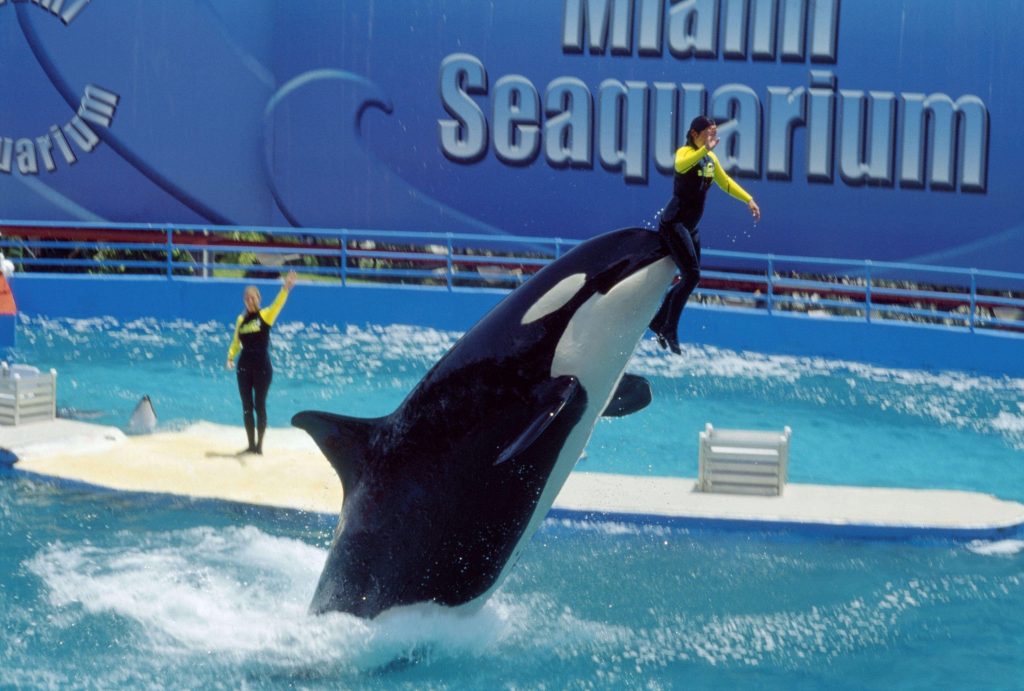
The latter death was documented in the 2013 film Blackfish, which caused an unprecedented shift in public opinion against the once beloved and respected attractions. Since its release, parks like SeaWorld and Miami Seaquarium have been falling out of favor with the general public, who have held marches and protests against them.
But it’s unfortunate that the same energy hasn’t been directed toward the industry as a whole. It’s not just the highly publicised controversial parks that are the issue, but every single business where animals are kept in captivity.
Even the so-called “good” aquariums are still inherently cruel, and deserve as much condemnation as their more notorious counterparts.
Studies have shown that around 90 percent of public aquariums house animals that display signs of extreme mental distress, including swimming in circles, bobbing their heads, and pacing back and forth.
As well as mental effects, aquariums can also result in physical illness. The copper sulphate and chlorine used to clean tanks can cause blindness and skin damage in dolphins and seals, and many animals have been shown to exhibit signs of stress-induced self-harm, such as chewing on concrete to destroy their teeth.
London Aquarium, a hugely popular tourist attraction that’s typically believed to be one of the best in the world, recently sparked upset over the conditions in which its Gentoo penguins are kept. One visitor proclaimed to have been in “tears” by their tiny underground living enclosure, and noted that one animal was engaging in repetitive behaviour.
Taking animals out of the wild
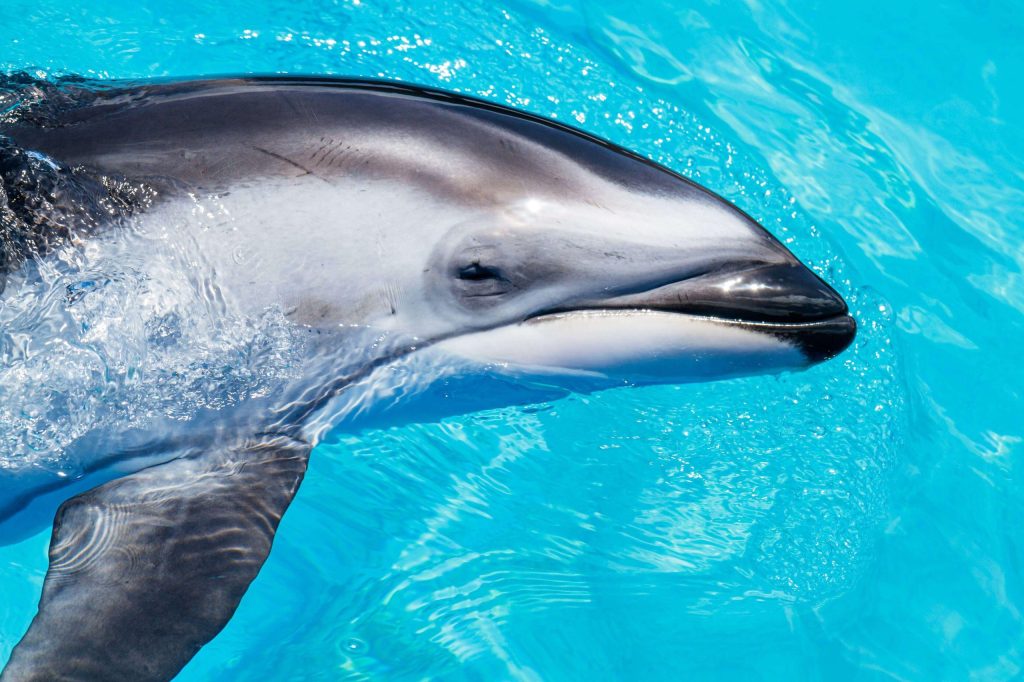
Many of the animals at parks and aquariums have been captured from the wild. Each year at the notorious Taiji dolphin hunt in Japan, hundreds of the animals are sold on to aquariums around the world.
Boats will often chase pods of dolphins or whales into shallow waters to trap them, before dragging them on board with a net. Those deemed unsuitable for captivity will be thrown back into the water, and many die of shock or pneumonia.
It is clear that the issue with marine parks and aquariums isn’t about a few “bad” parks, but the industry as a whole. Animals are not ours to use or abuse in any way; it would be impossible to create an ethical, profitable business built on the exploitation of any animal.
Marine parks and aquariums should take urgent steps to cease the purchase and breeding of animals, while moving their existing ones to appropriate sanctuaries.
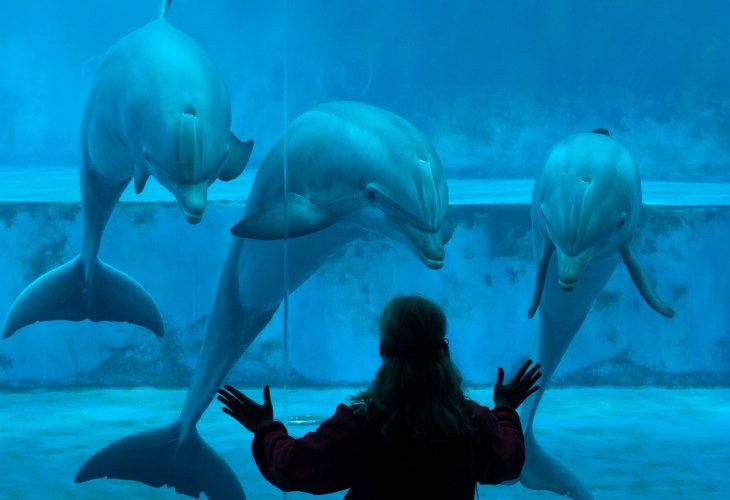













Leave a Comment
Plant Based News Comment Policy
In short:- If you act with maturity and consideration for other users, you should have no problems. Please read our Comment policy before commenting.